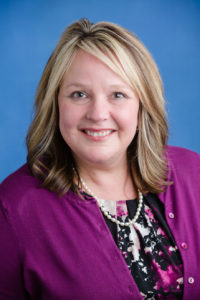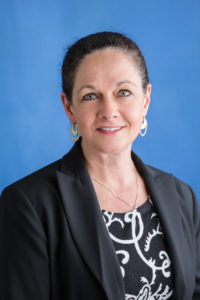An increasing number of women are becoming primary breadwinners in their households, so one might assume women are also taking on most of the financial decisions. On the contrary, most women in heterosexual relationships who are earning more of the household income aren’t making the major money-related decisions for the family1. So, why doesn’t earning power naturally lead to financial decision-making power?
- Traditional gender roles. Women may feel less comfortable managing the family finances, and men may feel that responsibility comes more naturally to them simply because of stereotypical gender roles.
- Work-life balance. Time constraints may also deter women from taking control of family finances. Between childcare, elder care, housework, and career demands, time to devote to money matters may be scarce. Having your spouse take finances off your full plate can seem helpful, but it may be detrimental in the long run.
- Lack of financial education. Some women may face challenges related to financial literacy. A lack of knowledge about investment, savings, and retirement planning can make it difficult and less appealing to become involved in financial decision-making.
While these reasons might all play into women’s lack of involvement in family finances, it’s critical for women to be in the know about where their money is going. Why? Women are often paid less than their male counterparts, which makes it more challenging for them to save for the future and achieve financial stability. Women are also more likely to take career breaks or work part-time to care for children or elderly parents, which comes with its own financial responsibilities. This can result in lower income and less retirement savings. Finally, women tend to outlive men, which means they need to save more for retirement and plan for a longer lifespan. For all these reasons, female breadwinners should budget strategically, prioritize their retirement planning, and plan for unexpected expenses and emergencies, such as medical bills or home repairs. To manage your finances more effectively and help you achieve your long-term goals, follow these tips for female breadwinners.
Tips to Take Charge
Communicate openly. Establishing open communication with your partner about financial goals, responsibilities, and expectations is key. This might also include redistributing household responsibilities—either to your partner or to an outside person or service—to allow more time for you to help manage your family’s money. Consider planning a date night to discuss your finances to help diminish any relationship tension around the subject.
Compile important information. As part of your communication with your partner about finances, it will be helpful to gather all your account numbers, names of financial institutions, location of assets, passwords, and important contacts such as attorneys and CPAs in one place. You should have hard and digital copies and your trusted family members should know where they’re located. In the event one of you passes unexpectedly, having this will make a difficult situation slightly less complicated to navigate. Ask your financial advisor if they have a template for this type of document that requires you to just fill in the blanks.
Create a budget. This will help you track your income and expenses, identify areas where you can cut back, and plan for the future. Start by listing all your monthly income and expenses, including bills, groceries, and other necessities. Having a clear sense of where your money is going will help you identify areas for improvement and is the first step toward becoming more involved in managing your family’s finances.
Save for retirement. Women need to save a larger percentage of their income for retirement than men just to end up at the same level of wealth. This is because women often take time out of the workforce, make less money than men, and live longer on average. So, retirement planning is crucial, especially if you’re the primary breadwinner. Make sure you’re contributing enough to your retirement accounts, such as 401(k)s or IRAs, and consider working with a financial advisor to determine the best investments for your goals.
Start an emergency fund. There’s always a chance you may face unexpected expenses, such as medical bills or home repairs. Having a financial safety net can alleviate stress, avoid a financial challenge, and provide a sense of security.
Purchase insurance. Ensure that you and your family have adequate coverage, including health, life, and disability insurance. These protect against unexpected events that could jeopardize your family’s financial stability.
Get your estate documents in order. In addition to a fund for emergencies and setting up insurance coverage, you’ll want to plan for your family’s future in case something happens to you. It’s advisable to consult with a qualified attorney about your specific situation and unique goals. Core estate planning documents generally include:
- Durable power of attorney (POA) for financial matters
- Health care POA (and/or a living will)
- Will
- Trust agreement (depending on your specific situation)
You’ll also want to update your beneficiary designations. Outdated beneficiary designations can derail an estate plan. Review your designations periodically to ensure that the correct people are named and are still appropriate.
Learn about personal finance. If you feel a lack of confidence in making financial decisions, attend workshops, read books, or consult with financial advisors to enhance your understanding of investments, retirement planning, and other financial instruments. Better understanding will lead to a greater sense of comfort in managing your money.
Consult a financial advisor. A professional can help you in various ways, such as informing you about tax breaks or credits you might not have known about, choosing investments based on your risk comfort level, and setting up the most beneficial retirement plan for your needs.
As more women take on the role of breadwinners in their families, they face unique financial challenges. With careful planning and management and communication with your partner, you can achieve financial stability and help ensure a secure future for yourself and your loved ones.
1 UBS Own Your Worth Report 2023: Women primary breadwinners face challenges in embracing their financial power | UBS Global
This material has been provided for general informational purposes only and does not constitute tax, legal, or investment advice. Although we go to great lengths to make sure our information is accurate and useful, we recommend you consult a qualified professional regarding your situation. Commonwealth Financial Network does not provide tax or legal advice.
© 2024 Commonwealth Financial Network®












